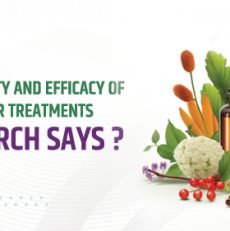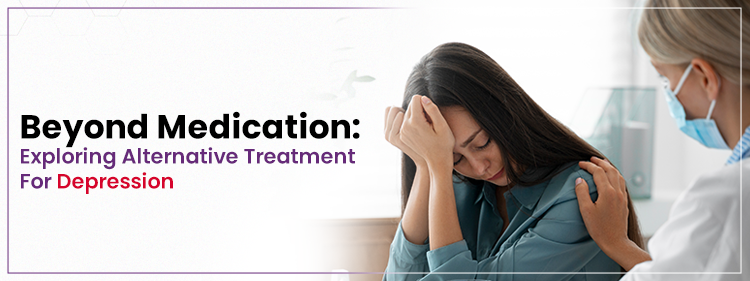
April 25, 2024
Navigating the Safety and Efficacy of Naturopathic Cancer Treatments: What Research Says
April 27, 2023 - admin

Clinical depression is a medical condition that transcends ordinary sadness and can result in serious and long-lasting symptoms. The disorder often impedes an individual's ability to carry out everyday activities and is the most widespread psychiatric ailment around the world.
The treatment of depression holistically is crucial as those who leave the disorder untreated have a lower quality of life, are at greater risk of suicide, and may have poorer physical outcomes if they suffer from any coexisting medical conditions.
In fact, individuals with depression are nearly twice as likely to perish than those without the condition. Beyond the impact on the individuals with depression, this ailment can also affect their loved ones and those around them. It is thus critical to assess and seek appropriate care of holistic consultant to manage depression effectively.
The term "depression" is often used colloquially, however, in the context of healthcare, it specifically refers to "unipolar major depression" or major depressive disorder.
In summary, a person may be diagnosed with unipolar major depression if they exhibit at least five of the following symptoms for a minimum of two weeks, with depressed mood or loss of interest/pleasure being mandatory.
The symptoms include:
The initial treatment for major depression involves a combination of antidepressant medication and psychotherapy, as studies have shown that combination treatment is more effective than either treatment alone. However, studies have also demonstrated that standalone use of either treatment is equally effective.
While both treatment options are comparably effective, psychotherapy has the added benefit of yielding longer-lasting benefits beyond the active treatment period. It can contribute to the development of new coping skills and a more adaptive outlook on life's challenges. This is not always the case with antidepressants, as many patients who rely solely on medication may experience relapse after discontinuation.
Throughout the treatment process, patients are encouraged by their consultants to monitor their symptoms and track their progress by completing symptom rating scales at intervals of two to four weeks.
Health care providers categorize individual medications into groups known as classes based on their chemical composition and the way they function. Medications belonging to the same class share chemical similarities and operate in a congruent manner.
The more frequently prescribed medications derive from the following classes:
Patients taking MAOIs must exercise caution with their diet as certain foods can adversely interact with the medication and prompt severe health complications. Health care providers can guide patients on which foods to avoid if they are taking an MAOI medication. For holistic consultants visit our site: Drs2health
Psychotherapy of all kinds involves professional support aimed at facilitating positive changes. Numerous specific types of psychotherapy have been developed to address depression. While each type differs in approach, they have all been empirically demonstrated to effectively alleviate depressive symptoms.
To enhance efficacy, psychotherapists often blend various techniques. Some of the options available include
To treat depression holistically and alleviate accompanying anxiety symptoms, it is recommended to combine formal treatment with supplementary activities. Activities such as relaxation techniques (e.g. progressive muscle relaxation) and exercise can be particularly helpful in mitigating symptoms. Individuals are encouraged to resume activities they may have stopped doing due to depression. Research shows that resuming these activities, even while still experiencing symptoms, can aid in turning the depression around.
Exercise, in particular, has been shown to have a positive impact on depression. Studies indicate that three to five exercise sessions per week, lasting 45 to 60 minutes each session, for at least 10 weeks, involving aerobic exercise (e.g. walking, running, or cycling) or resistance training (upper and lower body weightlifting) can be effective in easing symptoms.
Termed as "neuromodulation" interventions, these devices could be suggested for individuals who have shown unresponsiveness to medications and psychotherapy. The interventions consist of Transcranial magnetic stimulation (TMS), where magnetic waves are directed into the brain via a device placed on the scalp, and Electroconvulsive therapy (ECT), involving the administration of an electric current through the brain, resulting in a seizure that alters chemical composition in the brain to alleviate severe depression.
At DRS2HEALTH, we believe in treating depression holistically. Our products are designed to improve your overall mental and physical health, providing a comprehensive approach to wellness. Whether you're looking for natural supplements, mindfulness resources, or therapeutic services, we offer a range of solutions to help you find balance and overcome your depression.
Tags:

Leave a comment